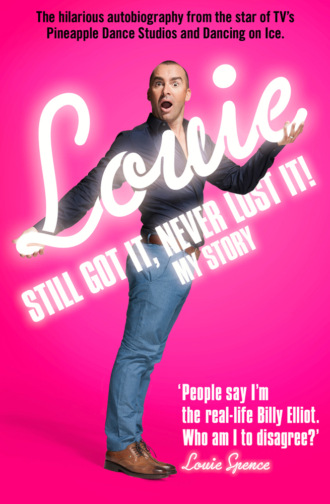Still Got It, Never Lost It!: The Hilarious Autobiography from the Star of TV’s Pineapple Dance Studios and Dancing on Ice

Полная версия
Still Got It, Never Lost It!: The Hilarious Autobiography from the Star of TV’s Pineapple Dance Studios and Dancing on Ice
Настройки чтения
Размер шрифта
Высота строк
Поля
Конец ознакомительного фрагмента
Купить и скачать всю книгу

